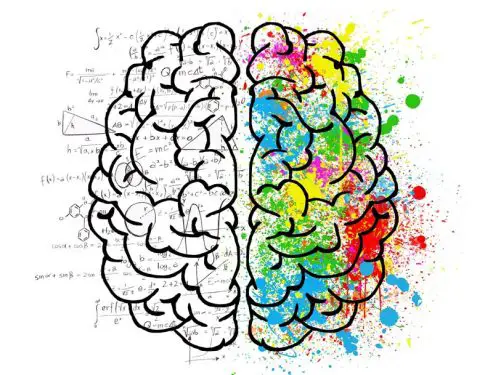What is Positive Psychology & Why is It Important?: In the last several decades, the evolution of science has transformed our understanding of the universe and the species living in it. Comprehending human behavior was surely among the biggest of challenges.
Historically many great thinkers such as Socrates or Aristotle presented their ideas about human behavior and its understanding but they were more tilt towards philosophy rather than psychology.

Inspiring your journey, one story at a time. #LifeFalcon.
Over the years with more research and better technology, we were able to design tools and procedures for the diagnostics of human psychology.
Table of Content
Traditional Psychology:
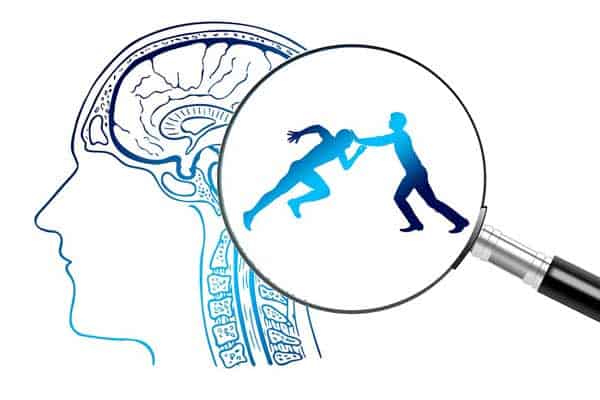
Traditional psychology as defined by the American Psychological Association is the scientific study of the mind and behavior.
The first-ever laboratory to study experimental psychology was opened in 1879 by Wilhelm Wundt, who presented the idea of structuralism in psychology.
Wundt worked on trained introspection, which was focused on how a human brain works while performing a certain task.
Although introspection was unreliable Wundt’s early efforts and contribution to the field of psychology is widely respected.
The human brain and behavior are too complex to be defined by a set of structures, therefore it was important to develop the understanding of human behavior and mind without setting boundaries.
William James an American psychologist presented the idea that psychology should focus on how and why organism functions and what is the purpose of that organism.
According to him, it was pointless to look for structures in human behavior because the mind is constantly evolving.
Therefore looking for the underlying cause of a behavior and the mental processes involved in that should be the focus of psychology.
Although psychology evolved over time as the new researchers contributed their work and ideas but there are four goals of psychology.
- Describe
- Explain
- Predict
- Change
Describe:
The first step is to describe the behavior to develop a clear understanding.
Analyzing thoughts, feelings, actions, and goals of human behavior under certain circumstances. This will help differentiate between the healthy and unhealthy responses of a human brain.
In the end, researchers can come up with laws.
Explain:
To understand why and how a certain behavior occurred is the next step. In this step, researchers try to ensure that the behavior is not an anomaly or an isolated event.
For that, the sample size is set in a manner that minimizes such possibilities.
A very good example to explain this is the experiment carried out by Pavlov when he noticed that dogs start to salivate before they see food because they know the food is coming as the bell rings. To ensure that such behavior is not an anomaly, he tested the same scenario with other dogs and all of them reacted similarly.
Predict:
After explaining a certain behavior, we can predict if the same situation can happen and if yes then under what circumstances.
Predicting human behaviors and mental processes give doctors a head up before a certain event occurs and that gives them time to mitigate any bad event from occurring.
Change:
Once it is clear that certain behavior can occur again and we know how and why it happens, then researchers can change such behavior or approach.
This is more like a diagnostics when doctors know exactly with what their patients are suffering from, then they can start medication and carry on with other treatments.
What is Positive psychology?

For far too long the medical science, in general, has focused on the prevention, cure, treatment, and diagnosis of diseases but there is much more to human health.
Much like any other field of science, psychology did not stop evolving and some researchers took a different approach towards the greater well-being of the society.
As we know that traditional psychology focuses on knowing your unconscious negative thoughts, weakness and then overcoming them to help our brains function in a healthier fashion, some researchers presented a different idea of focusing on strengths rather than weaknesses.
In a nutshell, positive psychology as defined by Peterson is “the scientific study of what makes life most worth living”.
A sick person can be treated and he can be cured too but that does not mean that he is living the life to the fullest of his abilities.
Similarly, a person might not be sick but it does not mean that he is in the best of his health.
Therefore, how can we focus on and help those who strive to live their life to the fullest of their abilities?
These positive traits could be biological, functional, and subjective in nature.
Biological factors could be a high heart rate variability, which represents a higher capability to handle stress and can recover from any previous episodes of stress or depression.
Functional factors could be a good and healthy marital relationship, which is one of the essentials of living a happier and successful life.
Being optimistic can be one of the subjective traits.
An optimistic person has a greater ability to cope with difficult situations as compared to a pessimist person because an optimistic person can take advantage of the positive aspects of the situation but a pessimist will only focus on the negative ones.
The main idea behind positive psychology is to identify what is good in life and develop that good into great.
It will be unfair to focus on those who are sick with some mental illness because those who are striving to overcome their challenges and develop their good into great deserves to live a happier life.
Martin Seligman’s work:
Martine Seligman holds vast experience in psychology.
He presented his theory of “learned helplessness” which states that those people who are suffering from stress and depression feel helpless too.
Their feeling of losing control over their life keeps them under the state of depression for a longer time.
As Seligman researched more, he learned that most people are resilient in nature but the major focus of psychology is trauma, pain, suffering, mental illness, bad experiences, etc.
That thought leads to his idea that psychology should also focus on happiness, well-being, strengths, etc. Dr. Seligman came up with the three levels of positive psychology and then well-being theory, which is an essential part of positive psychology.
Three levels of Positive Psychology:
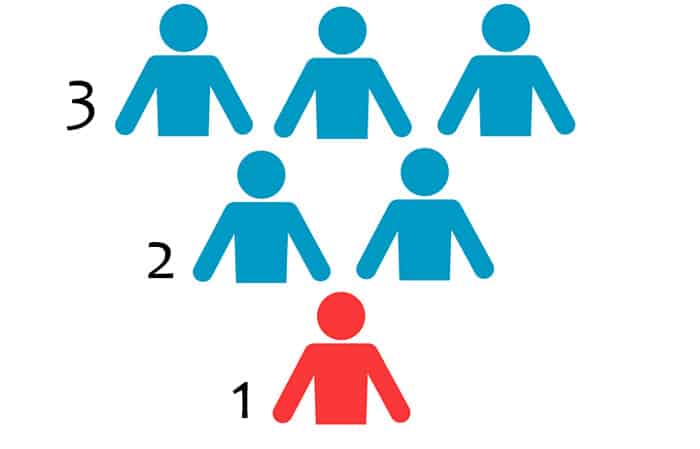
There are three levels of Positive psychology, which was presented by Dr. Seligman.
- Subjective level
- Individual level
- Group or community level
Subjective Level:
The level at which we study the impact of positive experiences and path leading to a “pleasant life”.
These positive experiences could be optimism, contentment, satisfaction, and flow.
It examines how a human experience positive feelings as part of normal or healthy living.
It does not essentially mean being a good person rather feeling good about oneself.
Individual Level:
At this level, we investigate what are the constituents of a “good life”.
How people feel when they are engaged in their everyday activities yet moving to live a good life.
What qualities a person should have that can lead to a healthier, normal, and happier life.
For example, the capacity to love, gentleness, forgiveness, wisdom, etc.
Group or community level:
A study into the “meaningful life”, how can positivity, happiness, social responsibilities, altruism, tolerance, work ethics, etc. can transcend into society, social group, organization, etc.
How can an individual develop a sense of well-being, belonging, meaning, and purpose into a larger group of people?
PERMA – The theory of being Well:
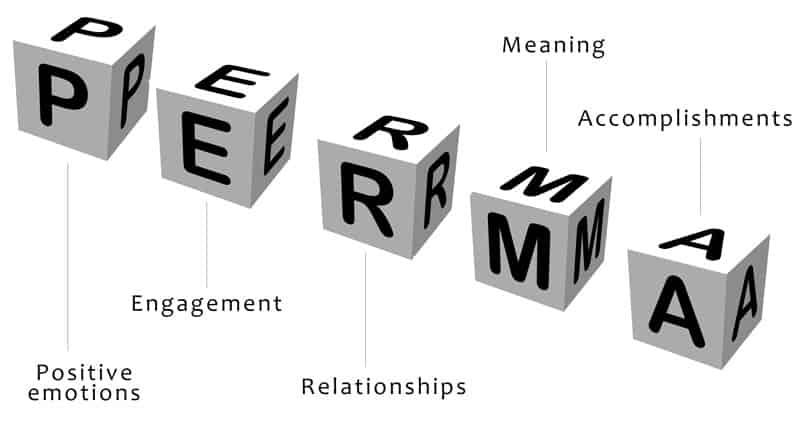
In later years Dr. Seligman presented a theory that the third level of a happy life i.e meaningful life can be further divided into several categories.
The theory is called and “well-being theory” or PERMA. All of the elements of the well-being theory were selected according to the criteria that they contribute towards the well-being, pursued its own sake, and measured independently of other elements.
- Positive emotions
- Engagement
- Relationships
- Meaning
- Accomplishments
Positive Emotions:
Positive emotions are essential for the happiness of a person. These emotions does not only encompass joy but also the feeling of excitement, satisfaction, and pride. These positive emotions in turn lead a person into a happier lifestyle, give the person courage to make peace with its past, bring hope into his future, and gives them the ability to live their present to the fullest.
Engagement:
Engaging yourself in an activity that gives you a sense of ecstasy.
Activity that draws all your attention to the subject matter and you are in a state of deep effortless involvement.
For example, many people use Golf as an activity which works as a therapy to them, they get so engaged in the game that they forget about all the worries and stress, gets completely consumed in the activity.
This is also defined by the term “flow”.
Relationships:
Relationships are one of the most important blessings of one’s life.
These relationships could be work-related or personal.
When we share our happiness, we strengthen our relations and that leads to a longer happier life.
These relations are equally important in hard times and good times, one always needs a good company to share their important moments.
Most positive things take place among other positive and happy people.
Meaning:
Finding the meaning of life is something that takes you on often strange paths but in the end, it is worth it.
Realizing that there is much more to life than just “you” and “your happiness” is the first step in that direction.
Once you realize that you take the next step of questioning, “Why are you here or what is the purpose of your life”.
When you attach yourself to a cause or meaning, which is greater than yourself, only then you realize the true meaning of life and time. It helps you strive more and motivate you to keep moving forward.
Accomplishments:
The sense of achievement is a very crucial aspect of a happy life. It is a pursuit of success, one must be able to look back and feel that they accomplished something.
These accomplishments can bring other aspects of the well-being theory in your life, such as meaning, engagement, and positive emotions.
Common criticisms of Positive psychology:

Just happy talk?
A common criticism or say misconception on the idea of positive psychology is that it is all about unpractical happy talk that means nothing in practical life.
However, positive psychology does not mean being unrealistically happy all the time.
Such behavior is not only unrealistic but also not fruitful as well.
Being unrealistically happy all the time may take your focus away from the challenges that need to be addressed before they appear to help you achieve your target and hence the idea is not supported by any positive psychology theory.
Overly optimistic:
Another criticism is that positive psychology talks about being overly optimistic.
This is also untrue since positive psychology focuses on the positive traits but does not over-emphasis on any of them. The main idea is to identify the positive aspects of your life and your inner strength, using them to move forward in life in a healthier manner rather unrealistic one.
Ignoring pain:
Positive psychology also does not ignore the fact that pain and sufferings are part of life. A person probably had to face back-to-back sets backs in life.
How those setbacks are responded to, is important and this is what positive psychology talks about.
Your approach towards a painful event should be practical and rational, both denial and pessimist approach will lead to further complications.
Purposeless happiness:
The idea of positive psychology is not teaching people to be happy without purpose as widely believed.
It will be annoying rather helpful telling people to be happy without identifying the positive aspects of life. For happiness, the source of the feelings should be practical and stable.
A deeper understanding of Positive psychology:
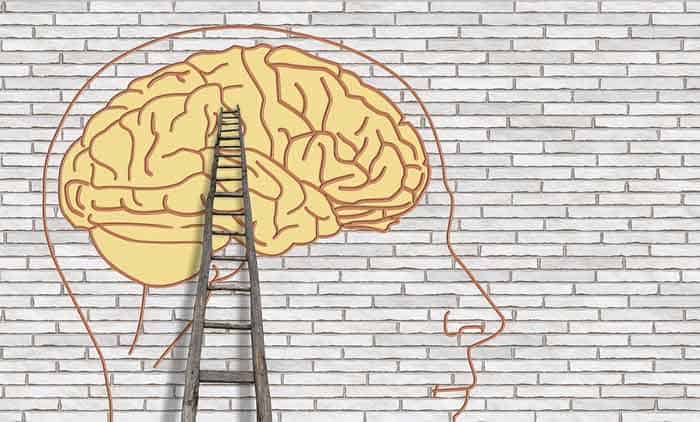
Among many other benefits of psychology, the biggest positive aspect is focusing on and harnessing your energy on the good and positivity in life.
Again, it is essential to understand that positive psychology does not talk about shifting your perspective towards the good only and ignoring the possible bad outcomes in your life.
Positive psychology only complements traditional psychology by a positive bias and it does not mean replacing traditional psychology.
Traditional psychology offers treatments like Cognitive Behavioral Therapy, which has proven positive results.
However, positive psychology teaches a person to be success-driven rather than fear-driven.
Findings of Positive Psychology:
If you ask a person, what makes people happy the first thing that comes to mind is money.
The definition of happiness might not vary a lot among people but the source of happiness varies a lot.
Since, due to different circumstances and life experiences, usually, we are unable to rationalize our thoughts and behaviors, we are unable to identify the actual source of our happiness.
We might probably give importance to one thing, which we believe makes us happy but in reality, we are overemphasizing that aspect.
Some of the general findings during the research of positive psychology are explained below.
Impact of Money:
Quite often people overemphasize the importance of money. It does not mean that money is not an essential part of living but it also does not mean everything.
There are a lot of people who have money but that money cannot make them happier and more productive. Running after wealth might increase your stress and anxiety.
Most essential and good things in life are free but it requires an eye of a person to recognize the beauty.
Gratitude:
Both Seligman and Peterson believe that gratitude is a big contributor to one’s happiness.
Which makes sense because developing gratitude means that you value what you have in your life as a blessing and what good others have done for you and not only you can realize the good but also have the courage to appreciate that.
It is not mandatory to share or communicate your gratitude with others, gratitude can bring positive impacts even if a person does not communicate it rather just counts the blessings and good they have in their life periodically.
The feeling of recognition for doing something good fills positive energy in you and helps others to spread happiness around them.
People who have the habit of feeling grateful for what they have, live a happier life, have better health, experience less stress, less anxiety and have a stronger immune system.
It makes your mind resilient to negative thoughts and eventually makes you less prone to mental illness.
Overall well-being:
With gratitude and focusing on your strength, the mind produces dopamine, which results in an increased level of serotonin and oxytocin.
All of these three hormonal chemicals are commonly known as happy hormones.
The increased level of oxytocin produces positive emotions in your mind and behaviors. It can also help decrease stress, anxiety, and helps in relaxation.
Invest in experiences:
It was observed that spending money on material things does not bring more happiness.
However, investing in healthier activities and experiences can bring more happiness and satisfaction.
For example, if you learn a new game or you go on a trip to mountain hiking, you can feel happier and these activities will have a long-lasting impact on your overall physical and mental health.
Putting effort:
According to some researchers, it is not sufficient to put on a happy face and pretend that you are happy while you are not.
You will have to put in some effort to be happy, be grateful for what you have, and find out opportunities to move on in hard times.
Having positive around:
Those who have happier friends and family around them tend to be happier in the long run as compared to others.
Having happier people around positively influences your life too.
Researchers believe that having good friends around you makes your immunity stronger, reduces your stress, depression, and significantly improve your self-confidence.
Associating yourself to a cause:
Researchers believe that by associating yourself to a noble cause, one can find purpose in their lives. It is a fact that when you help those who are in need, you start to realize how blessed you are and what are the positive aspects around you which you never recognized before.
It gives you peace of mind and makes your life happier. It wakes you up to the fact that you have to live every day and make it count.
Happiness is very contagious and your one positive gesture can spread a lot of positivity around you.
Ripple effect:
When you are happy and positive, it does not only influence your personal life but also your professional life.
A positive and motivated team leader will be in a better position to lead a team in tough times.
Similarly, a positive and motivated team member can positively influence the whole team and can increase the output.






